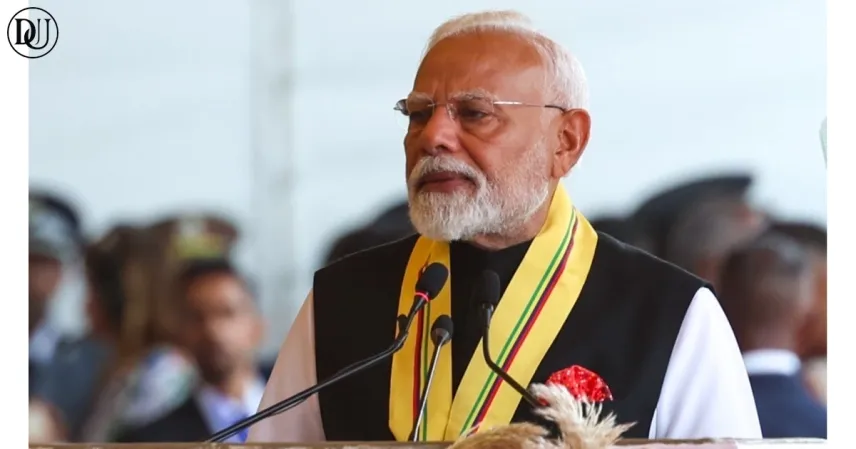Prime Minister Modi's upcoming visit? Feels like a big deal, you know? Not just because of the usual diplomatic handshake stuff, but because he's apparently got this India-UK trade pact on the agenda, alongside repairing ties with the Maldives. Honestly, it just randomly popped into my head how crucial this moment could be, like, the implications are actually pretty far-reaching.
We've been hearing about this India-UK free trade agreement for what feels like ages now. Remember all the back and forth? The whole visa situation, the tariffs on various goods—it's been a long haul. For some reason, I’d assumed it was kind of stalled, or at least not top of mind. But here we are, potentially on the cusp of something pretty significant. It makes you wonder what kind of concessions or breakthroughs have finally happened behind closed doors to get it to this point. I’m not 100% sure on the exact details, like what sectors are getting priority, but my gut says it’s going to be huge for both economies, especially given Brexit and the UK’s hunt for new markets.
The UK Trade Deal: What's the Real Scoop? ЁЯдЭ
Signing this deal, if it happens, would be a massive win for Rishi Sunak, like, politically. He needs a big foreign policy success, and a robust trade agreement with a growing economy like India? That’s gold. For India, it’s about market access, certainly, but also about signaling to the rest of the world that we’re serious about global trade, about building these strong, strategic partnerships. I’ve noticed a consistent push lately towards cementing India’s place as a major economic player, and this pact definitely fits that narrative. It could open up new avenues for IT, services, even some manufacturing, though the sticking points around things like Scotch whisky imports or auto tariffs are always fascinating to watch play out. It’s never simple, is it? There are always these intricate negotiations, balancing domestic interests with broader economic gains.
Maldives: More Than Just a Tourist Spot? ЁЯПЭя╕П
Then there's the Maldives situation. That’s a whole different ball game, but equally important. Relations have been... tense, let's say. There's been this whole 'India Out' campaign, which frankly, has been a bit baffling, given our historical ties and the sheer amount of aid and development work India has done there. The Maldives is super strategic, you know? Its location in the Indian Ocean makes it vital for maritime security, and honestly, for India’s geopolitical interests, having a friendly, stable government there is paramount. The increasing Chinese influence in the region certainly adds another layer of complexity to that relationship. Could be wrong, but I’d bet this visit is a crucial attempt to reset things, to smooth over any recent bumps and remind them of the long-term benefits of a strong partnership with India.
Modi's Diplomatic Balancing Act тЪЦя╕П
Thinking about it, juggling both a complex trade deal with a developed nation and mending fences with a vital neighbor in the Indian Ocean just speaks to the kind of multi-faceted diplomacy India is engaging in these days. It’s not just about one thing, it’s about a whole matrix of relationships and priorities. PM Modi, you know, he’s always been about projecting India’s strength and strategic autonomy on the global stage. This trip kind of encapsulates that, doesn't it? Balancing economic ambition with regional security concerns. It's a delicate dance, but one that seems pretty essential for India's aspirations to be a leading global power.
Beyond Trade: The Strategic Chessboard ЁЯМН
Consider the broader picture here. A strong India-UK trade pact could definitely shift some dynamics in global trade, especially in a post-Brexit world where the UK is actively seeking new partnerships beyond Europe. And strengthening ties with the Maldives? That’s a clear signal regarding India’s commitment to its neighbourhood first policy, but also its determination to counter any adverse influence in its immediate strategic backyard. It's not just about trade figures or diplomatic niceties; it’s about shaping spheres of influence, building alliances, and projecting power without being overtly aggressive. Honestly, it’s fascinating how all these pieces fit together on the geopolitical chessboard.
What's Driving These Talks, Really? ЁЯдФ
You have to wonder what specific breakthroughs have been made on the UK trade pact. Is it a breakthrough on specific goods? Services? Investment? Or maybe it's more about a political will to get it done, especially with a UK general election on the horizon, possibly. For the Maldives, it could be that the current Maldivian leadership is recognizing the practical benefits of strong India ties over other, perhaps less reliable, partners. There’s always more to these things than meets the eye, like the public statements. It's never just a simple economic decision; there are always political undercurrents, strategic imperatives. I mean, they wouldn’t prioritize this right now if there wasn’t a strong underlying reason, right?
The Road Ahead: Hurdles and Hopes ЁЯЪз
Even if these deals are inked, the real work begins then. Implementation, dealing with any unexpected hurdles, ensuring that the benefits actually trickle down to businesses and people. A trade pact, no matter how comprehensive, is just a framework. The test is in how it transforms economic relations. With the Maldives, it’s about rebuilding trust and ensuring long-term stability in a region that’s increasingly becoming a hotspot for great power competition. The visit is definitely a positive step, but it’s just one step. The hope, I guess, is that these diplomatic efforts lead to tangible, lasting benefits for all parties involved, strengthening India's position and fostering stability in the wider Indo-Pacific. It’ll be interesting to see how this plays out in the coming months, honestly.










